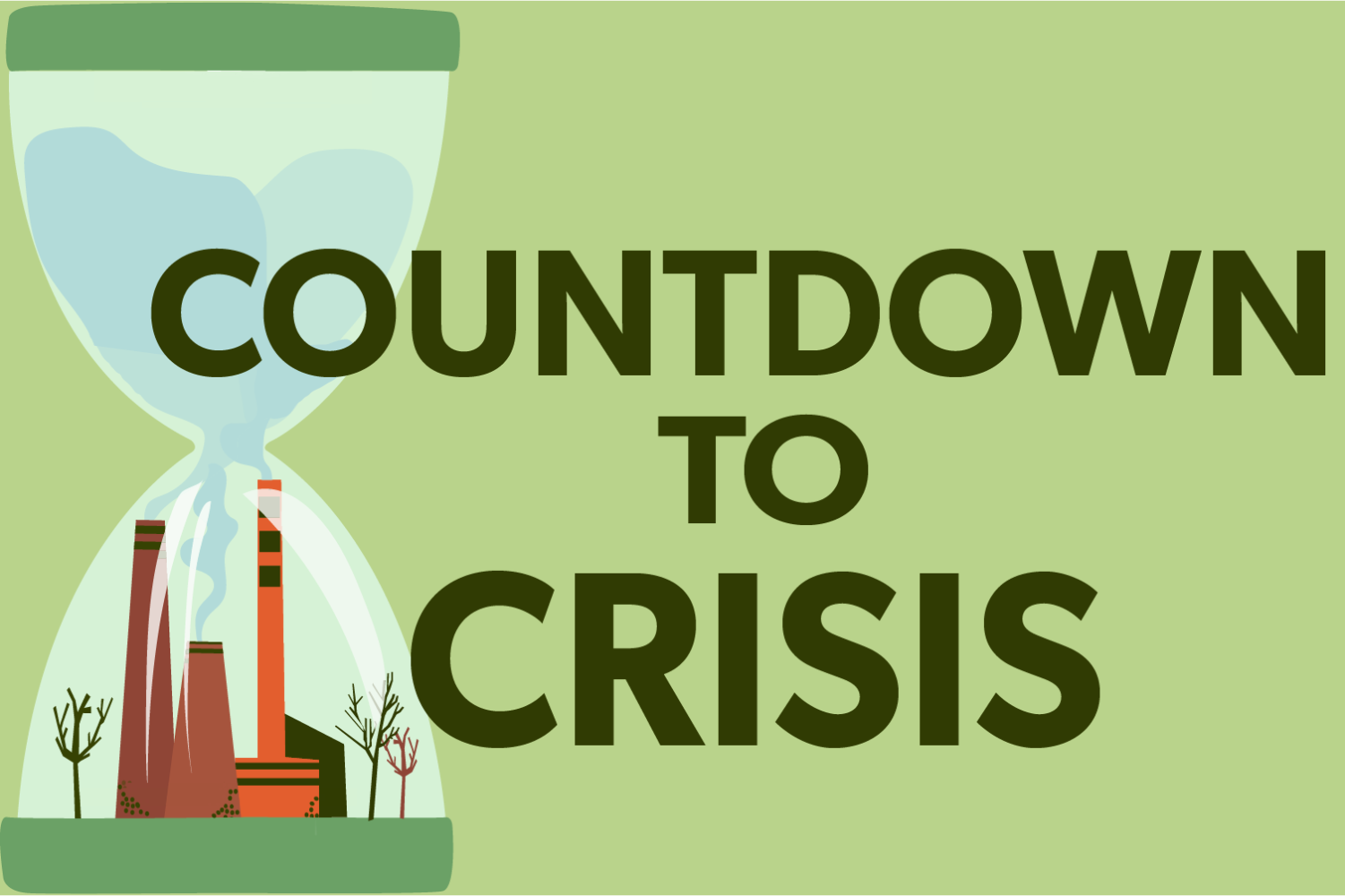With the approval of the Willow Project, students and staff share opinions on climate change
Students contribute to the fight against the climate crisis in small ways to ease climate anxiety
April 22, 2023
With President Joe Biden’s recent approval of the controversial Willow Project, an oil drilling project in Alaska, many teens are feeling worse climate anxiety than ever. The project, as proposed by ConocoPhillips, would have included five drill sites located on Alaska’s North Slope. However, Biden only approved three sites and thus reduced the scope of the project greatly. Despite Biden’s efforts to minimize the project’s potentially harmful effects, many climate activists were outraged at the project’s approval, claiming Biden was turning his back on campaign promises. This pushback was particularly felt among members of Generation Z on social media, with the spread of information and petitions.
What’ve we tried?
Long before the Willow Project’s approval, though, students have been making individual efforts to limit the effects of climate change.
For junior Gwen Heideman, shopping sustainably is a great method of helping in small ways, but education can also be an avenue.
“I try to purchase sustainably so my clothes are all from thrift stores,” Heideman said. “I try to use reusable bags whenever I can. I’ve educated myself a whole lot about climate change. I want to spend some time learning about what I personally can do to help.”
Clubs like In the News have facilitated those conversations. Junior Meron Abebe, club president, explains the conversations about the environment they have had at meetings and the future plans she has to discuss more about actions students can take .
“I know that In the News has briefly discussed topics of climate change,” Abebe said. “I’m considering a meeting in the close future about climate change.”
Another common avenue for education on climate change is social media. For Heideman, teenagers gravitating towards this platform for information can generally be beneficial as long as you take into consideration your sources, and fact-check some of the information you are reading.
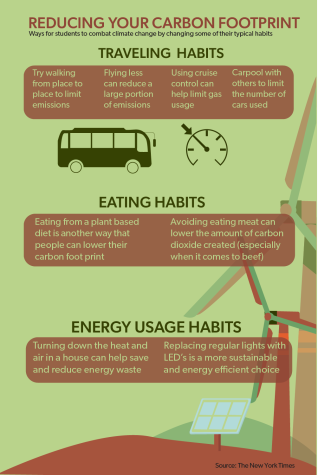
“I think that it helps to educate people and I do think that if used correctly, if you look at the right things that you really can learn a lot from it.” Heideman said. “As long as you’re not going on to sources that have misinformation and you [use] unbiased sources.”
Nonetheless, when looking at the efforts of individuals to go green, some are skeptical about their overall impact. Social studies teacher George Walden has seen many individual attempts to go green, but hasn’t seen a large impact since they have been advertised.
“When I was in high school they talked about reuse, recycle, all that type of stuff, but they also talked about turning your lightbulbs off.” Walden said. “I don’t know if those little actions collectively make a big difference but I don’t know if people are making those changes.”
Similarly, biology teacher Landra Fair believes that as long as we have fossil fuels to maintain our lifestyles, change is going to be more difficult, no matter how many people try to go green.
“In the ‘70s, we were running out of fossil fuels, and cars got smaller and people were interested in solar panels and conserving energy.” Fair said. “But then once the technology got better, and we found more fossil fuels, it was like nobody cared anymore about cars or using less energy because we weren’t running out.”
What is happening?
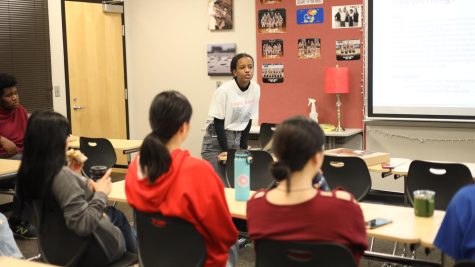
Despite efforts to shop sustainably and consider the environment, many teens are feeling more climate anxiety than ever with the approval of the Willow Project.
Heideman is one of these teens, and explains the feelings they experienced upon hearing it had been approved.
“I think that it’s really scary,” Heideman said. “I think that there is a lot of harm that is going to come from [the Willow Project] and I think that Biden is going against what he originally set out to do by approving the Willow Project and allowing this to happen. I think that it really is going to hurt the environment a lot and I don’t think that we can handle anything else. I think that we need to focus more on reversing the damage that we’ve already done rather than creating more damage.”
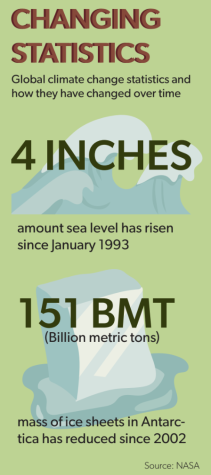
Similarly, Abebe was disappointed when she learned about the project’s approval.
“I feel like after finding out it passed I was just really upset,” Abebe said. “[During his campaign,] Biden was like, “oh, I actually want to help the climate,” and in passing this he’s contradicting his own statement.”
Heideman and Abebe’s opinions are not uncommon. According to the Pew Research Center, 79% of Americans say the government should prioritize developing alternative sources of energy. This opinion about the Willow Project, specifically, is reflected among the student body too. According to a JagWire survey, of those who knew what the project was, 72% of students are fully against it and 18% are somewhat against it.
For Fair, while recognizing the impact produced from the U.S, it is equally important to strive for international cooperation in order to produce a more widespread impact.
“Right now India and China are…burning more fossil fuels than ever before.” Fair said. “So even if Europe and the U.S. and Canada decide to limit our emissions, if other countries aren’t doing it, it’s not going to make as big an impact.”

In light of the increased talk on climate change, social studies teacher George Walden, recognizes the science and the importance of doing what we can to help the environment.
However, Walden also believes that we should consider that today, we have better technology to report on and analyze the issues our society is facing.
“It seems like things are getting worse, but I’m also a little skeptical, ” Walden said. “People are living now more than ever in low lying areas, people are living on the beaches, people are living just all over the place. We also have technology that can report on natural disasters. So are the disasters themselves getting worse or are we just seeing them more often in the news?”
The point Walden brings up is not uncommon either. Even among teens, there are many who are
concerned about increasing climate change, but don’t feel particularly anxious about it. Freshman Heidi Baillos feels as though people are taking steps in the right direction, which helps to soothe her concerns.
“I’m a little bit [anxious], but I’m generally pretty calm about it because I know people are making the right steps,” Baillos said. “It does scare me that we’ve gone up in temperature over the past few years.”
What comes next?
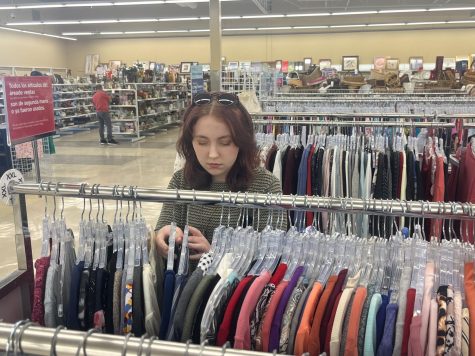
One effect of the Willow Project’s approval has been discussion of what changes should be made moving forward.
For Abebe, simply listening to younger people’s voices instead of shutting them down could be a good step forward.
“I think a lot of the time there’s this ideology that Gen Z is supposedly this woke culture that is very performative and I agree that there are aspects of this generation that are very performative,” Abebe said. “However, most of the time and for most of the people that I’ve met, it’s genuine care in wanting things to change. I think just listening to our generation and acknowledging that we want to have change that is actually going to better the generations that come after us is important.”
Similarly Heideman thinks that adults should acknowledge that their actions are now the younger generations’ responsibilities.
“I think that [adults] need to understand that the fallout from their generation, from what they failed to do, is going to rest on our shoulders,” Heideman said “I think that it’s really scary for us because we’re going to have to deal with the world that they left for us.”
Fair believes an important step is prioritizing technology that is, “Cleaner and less harmful to ecosystems, so no more oil spills or no more carbon dioxide or smog or acid rain.”
Additionally, Fair believes that with more discussion people are able to recognize and help advocate for change.
“I see a change now where the consumers are saying, Hey, we can’t do this without the government and without the corporations making regulations and driving this change.” Fair said. “We really need all the governments of every country to agree that this is important and make changes.”
Similarly, Walden also recognizes that individual aspects may not have a large impact, but he also thinks that drastic change from governments and businesses is not guaranteed. Thus, small efforts like utilizing solar power can be the best way to move forward for average people.
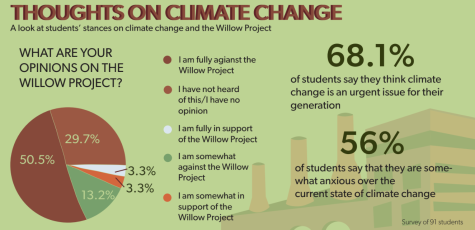
“[I] don’t know if you can really stop an entire planet from doing what it’s doing, especially with all the emissions that we’ve put out there for years and years and years.” Walden said. “So, I think we’re gonna have to get really good at adapting to whatever our planet brings us, there’s probably going to be some migration that happens in the future.”
Abebe agrees that even though small actions may not solve all environmental issues, they are important.
“Even though one person being vegetarian or one person recycling may be small, you’re still doing something,” Abebe said. “I think that’s worth all the while as opposed to doing nothing and just sitting and letting it happen.”
